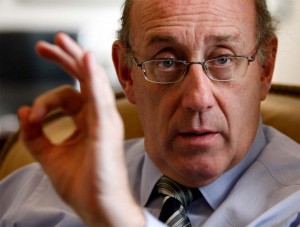The fund established by General Motors to compensate the victims killed or injured in vehicles with the maker’s faulty ignition switch will pay claims to 398 people or their families.
GM ordered the recall of nearly 2.6 million small cars in 2014 equipped with the switches after it was determined that they could slip into the “accessory” position while the vehicle was in motion, cutting power to the steering and airbags.
As a result, the fund determined there were 124 deaths and 274 injuries attributable to the switch. GM initially said there were just 13 deaths related to the switches. Death benefit claims begin at $1 million and rise depending upon a variety of factors.
The fund, administered by attorney Kenneth Feinberg, completed processing the 4,342 claims last week, deeming 91% of them ineligible. The deadline to apply was Jan. 31.
Fund spokeswoman Camille Biros said Tuesday that 298 of the 396 offers made so far have been accepted. Five have been rejected. The fund plans to make two more offers, bringing the total to 398, according to Associated Press.
If an offer is accepted, the victim agrees to not sue the automaker at a later date. The company has paid $280 million to victims’ families through mid-July and expects settlements to total $625 million, according to a second-quarter SEC filing.
(GM fund processes last of victim’s fund claims. For more, Click Here.)
GM is fighting 172 lawsuits related to injuries or deaths related to the more than 26 million vehicles it recalled last year. There are 100 class-action suits claiming that their vehicles have lost value due to the problems.
(Click Here for details Fiat Chrysler’s plans to deal with safety issues.)
Some of these lawsuits (along with many others) are part of the 212 cases lumped into a multi-district litigation within the Southern District of New York. The maker is trying to handle them all at the same time.
(To see why a lawyer plans to depose former GM CEO Rick Wagoner and others for lawsuit, Click Here.)
In addition, GM is also facing investigations by 50 state attorneys general and a criminal probe by the Department of Justice.

